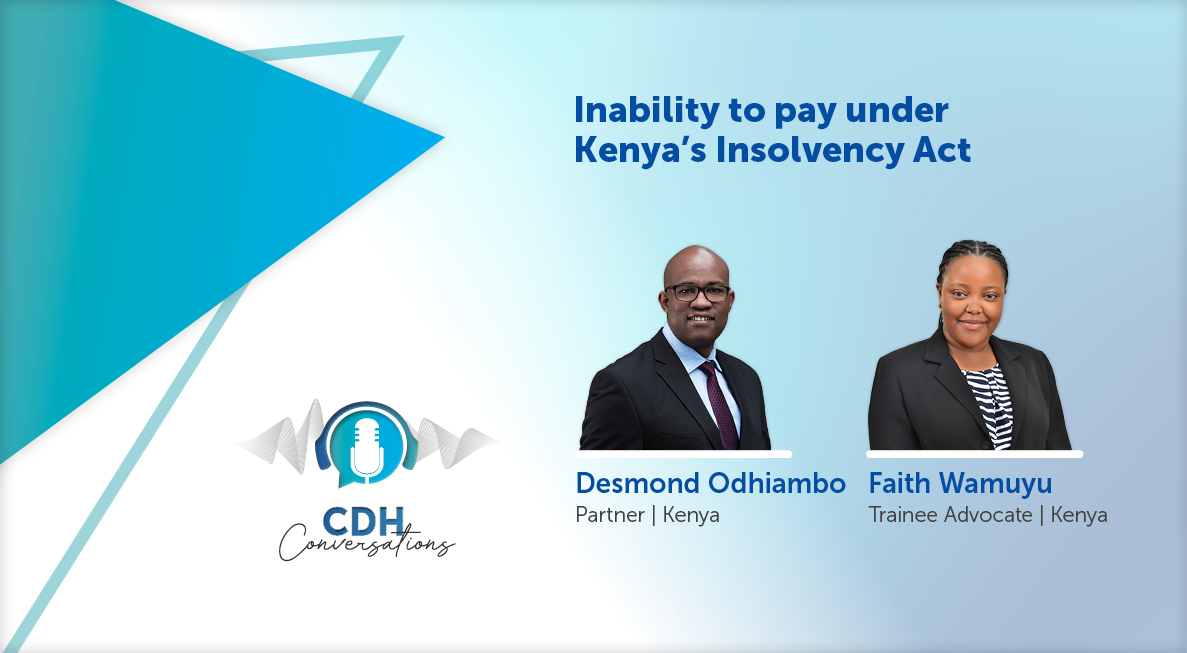The meaning of “voluntary” in a voluntary disclosure: The SCA weighs in
Facts
On 12 January 2015, the appellant entered into a dry lease agreement with its holding company (a company incorporated and tax resident in the United States of America (US)) in respect of an aircraft that was registered in the US. The aircraft was subsequently imported into South Africa and was used to transport goods and personnel from South Africa to other countries situated in Africa. As a consequence of the importation of the aircraft, the appellant became liable for the payment of value added tax (VAT) to SARS but failed to make payment thereof at the time.
In the latter part of 2016, the appellant obtained a VAT technical opinion from its tax advisors which indicated that VAT had become payable to SARS in 2015 upon the importation of the aircraft. Consequently, the appellant engaged with various representatives of SARS to obtain a view on its tax liability in respect of the importation of the aircraft and to arrange a meeting in order to regularise its tax affairs. In doing so, the appellant disclosed a broad overview of the facts relevant to the matter to SARS’ representatives.
In February 2017, SARS indicated to the appellant that it was liable for the payment of VAT and penalties in respect of the importation of the aircraft, as well as interest in respect of the late payment of the VAT liability. In an email dated 29 March 2017, the appellant responded to SARS’ correspondence by acknowledging its non-compliance (as specified by SARS) and the corresponding penalties that would be imposed in respect thereof.
Despite being advised by its tax advisors and SARS that the appellant ought to regularise its tax affairs, the appellant took no further action until April 2018, when it applied for voluntary disclosure relief in terms of section 226 of the Tax Administration Act, 28 of 2011 (TAA) (VDP Application).
Relying on section 227 of the TAA, SARS rejected the VDP Application on the basis that the disclosure:
- was not made by the appellant voluntarily; and
- did not contain any information of which SARS was unaware at the time of the disclosure.
SARS’ decision to deny the voluntary disclosure relief pursuant to the VDP Application was taken on review by the appellant to the High Court, which delivered its judgment on 25 August 2020. In its judgment, the High Court dismissed the appellant’s application for review of SARS’ decision and concluded that the disclosure made by the appellant had not been voluntary as there had been an element of compulsion on the appellant’s part when the VDP Application was submitted.
The appellant therefore appealed the decision of the High Court to the SCA.
Judgment
The primary issue to be decided by the SCA in this case was whether SARS had been correct in rejecting the appellant’s VDP Application on the basis that the application had not been made voluntarily, as a result of which the VDP Application did not comply with the requirements set out in section 227 of the TAA. Having regard to the facts of the case, the SCA found that the determination of the aforementioned issue centres around whether the engagement by the appellant with SARS’ representatives (and the related exchange of information) had any material bearing on the VDP Application.
It was contended on behalf of the appellant that:
- prior information disclosed by a taxpayer to SARS for purposes of ascertaining the taxpayer’s tax liability should not affect the validity and voluntariness of a voluntary disclosure; and
- on a proper interpretation of the word “disclosure”, there is no requirement that the disclosure ought to pertain to new information or facts of which SARS had not previously been aware.
On the other hand, SARS argued that the VDP Application did not comply with the requirements of section 227 of the TAA as it did not disclose any new facts to SARS and the submission thereof was prompted by the warning given by SARS that the Appellant would be liable for penalties and interest arising from its failure to have paid the relevant tax in 2015. As such, the submission of the VDP Application was not “voluntary”, as required by section 227 of the TAA.
According to the SCA, the term ‘voluntary’ means ‘performed or done of one’s own free will, impulse or choice; not constrained, prompted, or suggested by another’, while “disclosure” means ‘to open up to the knowledge of others; to reveal.’ In its consideration of the meaning of these terms within the context of section 227 of the TAA, the SCA quoted with approval the following passage written by Solomon Rukundo in an article dealing with Uganda’s voluntary disclosure programme:
‘“Voluntary disclosure occurs when a taxpayer, unprompted and of their own volition, comes forward to disclose their tax liabilities, misstatements or omissions in their tax declarations in order to return to a fully compliant status with respect to legal obligations”’. […] Voluntariness of a disclosure is a key policy objective of the programme. If disclosures made by taxpayers prompted by compliance actions were to be accepted, there would be no incentive for taxpayers to correct past deficiencies until it was clear that they are going to be held accountable.”
The SCA recognised that section 227 of the TAA arms SARS with extensive powers to prevent disclosures by taxpayers that are neither voluntary nor complete in all material aspects. It was held that the purpose of a voluntary disclosure application is to ensure that non-compliant taxpayers have a pathway to regularise their tax affairs out of their own volition and without any prompting, thereby making amends in respect of their defaults by informing SARS thereof. To this end, the SCA was of the view that the voluntary disclosure provisions would serve no purpose if they enabled taxpayers to obtain informal advice from SARS, following which the taxpayers would be able to apply for voluntary disclosure relief if the said advice was not in their favour.
In coming to its decision, the SCA had specific regard to the email sent by the appellant to SARS on 29 March 2017 and inferred from that email that:
- the VDP Application was prompted by compliance action on the part of SARS, which was aware of the appellant’s default following the interactions between SARS and the appellant;
- the appellant recognised that it was liable for penalties which had to be paid before it would be tax-compliant; and
- the VDP Application was not motivated by the appellant’s desire to come clean to SARS, but rather to avoid the payment of penalties by it.
These findings by the SCA were bolstered by the fact that there was no evidence to suggest that the appellant had previously been contemplating a voluntary disclosure application, and further that the appellant failed to take any action for an extended period. On this basis, the SCA concluded that the VDP Application had not been submitted on a voluntary basis.
The SCA then reiterated that voluntary disclosure relief cannot be granted in circumstances where SARS had prior knowledge of the default (regardless of the source of such prior knowledge) and had, in addition, warned the appellant of the consequences of its default. It was held that to grant relief in these circumstances would be contrary to the purpose of the Voluntary Disclosure Programme, which is to “enhance voluntary compliance with the tax system by enabling errant taxpayers to disclose defaults of which SARS is unaware, and to ensure the best use of SARS’ resources.”
The SCA therefore agreed with SARS’ contention that, on a proper interpretation of section 227 of the TAA, the appellant’s submission that the section must be construed as excluding prior knowledge on the part of SARS cannot be accepted. As such, the submission by the appellant that the VDP Application should be treated as if no previous exchanges had been made with SARS was without merit on the basis that it would allow taxpayers who have not complied with their tax obligations to seek an opinion from SARS and, upon receipt of that opinion, apply for voluntary disclosure relief. In the SCA’s view, this is exactly the type of mischief that the legislature sought to avoid.
Ultimately, the SCA concluded that the VDP Application had not been made voluntarily, and further did not disclose any information of which SARS was unaware and as such, the appeal was dismissed with costs.
Comment
To meet the requirements of the Voluntary Disclosure Programme, it is necessary for taxpayers to take SARS into their confidence and voluntarily make full and proper disclosure of any non-compliance, which disclosure must not be prompted by SARS or made as a result of any fear or compulsion on the part of the taxpayer. It is also necessary that SARS must undoubtedly not be aware of the taxpayer’s default.
Whether a voluntary disclosure has been prompted by a compliance action is a question of fact that is to be determined having regard to the specific circumstances in which the disclosure is made. The SCA indicated that the onus is on the taxpayer to establish, on a balance of probabilities, that it has fully met the requirements of the section 227 of the TAA
While the relief granted under the Voluntary Disclosure Programme has enticed a significant number of taxpayers to regularise their tax affairs with SARS, various uncertainties have arisen regarding the specific circumstances in which a disclosure will be regarded by SARS as voluntary and complete.
The SCA’s judgment provides useful guidance as to how the phrase “voluntary” in section 227 should be interpreted. Prior to this judgment, there was no binding authority on the meaning of “voluntary”. While it remains to be seen how this interpretation will affect taxpayers’ perception and continued use of the Voluntary Disclosure Programme, it does provide certainty. A taxpayer who would like to apply for relief under the Voluntary Disclosure Programme but is concerned that the application may be rejected due to not being “voluntary”, can make an informed decision based on this judgment.
SARS has also issued an updated Draft Voluntary Disclosure Guide (Guide) to assist with providing certainty and clarity to taxpayers who are considering submitting a voluntary disclosure application. Subsequent to its publication in 2021, the public had been given an opportunity to comment on the proposed amendments to the Guide. On 31 January 2022, SARS held a workshop with the public to discuss the proposed amendments and the comments received by SARS in respect thereof. While the judgment of the SCA in the Purveyors South African Mine Services (Pty) Ltd v Commissioner for the South African Revenue Services case was handed down after the closing date for public comments in respect of the Guide, relevant submissions pursuant to the SCA judgment were submitted to, and taken under advisement by, SARS.
It is hoped that the final version of the Guide, incorporating the public comments received, will be published in 2022.
The information and material published on this website is provided for general purposes only and does not constitute legal advice. We make every effort to ensure that the content is updated regularly and to offer the most current and accurate information. Please consult one of our lawyers on any specific legal problem or matter. We accept no responsibility for any loss or damage, whether direct or consequential, which may arise from reliance on the information contained in these pages. Please refer to our full terms and conditions. Copyright © 2026 Cliffe Dekker Hofmeyr. All rights reserved. For permission to reproduce an article or publication, please contact us cliffedekkerhofmeyr@cdhlegal.com.
Subscribe
We support our clients’ strategic and operational needs by offering innovative, integrated and high quality thought leadership. To stay up to date on the latest legal developments that may potentially impact your business, subscribe to our alerts, seminar and webinar invitations.
Subscribe



